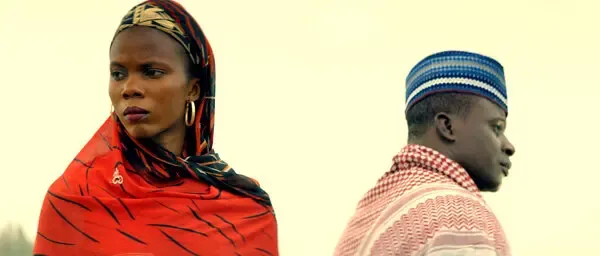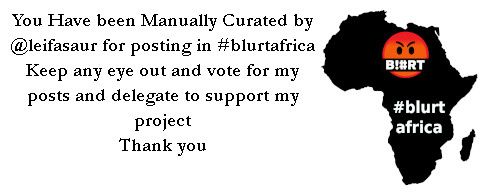The Milkmaid is set in an unknown provincial piece of Sub-Saharan Africa where a rough clash seethes, helmed by an anonymous Islamist radical order. It follows Aisha (Anthonieta Kalunta), a youthful Fulani milkmaid, as she and a more youthful young lady, Hauwa (Persistence Okpala), battle to endure the brutal world completely all alone, and as Aisha takes a chance with everything looking for her more youthful sister, Zainab (Maryam Booth).The three of them are kidnapped by the extremists, close by different young ladies and ladies, during an assault on their town upon the arrival of Zainab's wedding. They are taken to the extremists' camp where they are abused and compelled to do extremely difficult work and notice necessary diets. In a little while, the sisters are constrained into marriage with extremists, Aisha to Dangana (Gambo Usman Kona who serves as the film's area director), and Zainab to Shehu (Alex Pwatildi). A contender, even as a casualty, Aisha takes the principal risk she will get away. However, she gets isolated from her sister, leaving just with Hauwa. She then, at that point, chooses to return for Zainab, getting back to the oppressors she got away from and finding partners and deceivers in individuals she least anticipates.
Motivated both by the two Fulani milkmaids imagined at the rear of the ten naira note, and by the present-day rule of dread being executed by the Boko Haram psychological militant gathering, especially the Chibok school young ladies abducting, The Milkmaid unhesitatingly digs into the detestations looked by female survivors of rough radicalism. However much as could be expected, Ovbiagele tries not to show the viciousness in realistic detail, yet it's as yet a frightening composition as we watch the radicals upswing the young ladies' straightforward yet blissful lives as milkmaids. The film investigates the numerous features of agony that they go through, from not knowing whether their friends and family are alive, to being compelled to wed their oppressors, and being dismissed by their families as a result of the excluded changes to their lives, in any event, when they some way or another return home. In The Milkmaid, ladies stay at the very front of the story as they work through their uncalled for disgrace and enduring, and in any event, when they track down ways of reclaiming the control over their own lives.
Be that as it may, Ovbiagele goes significantly further, endeavoring to analyze the outlooks of the fierce radicals themselves. The film refines them, however it doesn't legitimize their activities in any capacity. It brings up pietisms in their techniques, as a matter of fact. It's intriguing to perceive how the extremists legitimize their decisions, in any event, with regards to issues of their own confidence. At the point when they force a spouse on a generally hitched Aisha, they pardon themselves of any transgression on the ground that she can't bring evidence of her marriage, despite the fact that they are the ones keeping her hostage. At the point when Hauwa whines that she's not mature enough to be hitched, one of the radicals mentions that his own 5-year-old little girl is hitched. What's more, in one striking talk delivered offscreen, a lady pitches self destruction bombarding to another, utilizing women's activist belief systems. It isn't. Furthermore, we realize that God is simply, so it makes sense that our jobs as ladies can't be just to cry and keep the family without a trace of men. No, we are to be full members in the battle. We are similarly all around as proficient as they, while perhaps not more."
Trying, aggressive, outwardly shocking and fittingly tragic, The Milkmaid is a careful report on the encounters of ladies amidst fierce contentions, and the impacts of fanaticism on ladies and young ladies. However, there's a worldwide enticement for it, since a large number of ladies and young ladies in struggle ridden regions across the world offer comparable anguishing encounters. Besides, albeit no express political associations are made, the film makes allegations that are at the same time striking and unobtrusive — from indicating that the radicals include sources inside the country's security powers, to presenting a defense that the safe-houses of the extremists are not exactly covered up.
Out and out, this is some great filmmaking. There's more work to be finished, however this is a brilliant expansion to Nollywood's psychological oppression themed film and, honestly, the whole business. Another bar has been set, and it's high.

